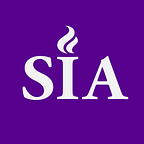Unspoken Victims: Indigenous People and the Crisis in Venezuela
by Arthur Costa da Silveira
On the last Thursday of February, Nicolas Maduro closed the land border between Venezuela and Brazil, bottlenecking one of the largest routes for humanitarian material entering Venezuela. Efforts to send aid to the country in need have been blocked by Mr. Maduro, who claims that relief trucks coming from Colombia or Brazil are part of a ploy to overthrow the Bolivarian government.
Falling oil prices, skyrocketing inflation, and internal squabbles in the government destabilized the economy and set what was once Latin America’s strongest economy plummeting. Ongoing food shortages contribute to Venezuela having one of the largest internally displaced populations in Latin America, with estimates reaching 1.5 million. Peaceful demonstrations against Maduro haven’t been immune to crackdown by pro-government forces, with opposition supporters being killed in clashes.
Governments that support Guaído have been quick to impose diplomatic and economic sanctions on Venezuela, crippling Maduro’s already-suffering economy. The United States, Brazil, and Colombia proved to be the largest international advocates for a transition of power in the country. Guaído has been keen on insisting that all the borders closed by Maduro should be reopened and aid from Brazil, Colombia, and the Dutch island of Curaçao should be allowed to enter the country immediately. However, Maduro still receives support from countries such as Russia, Cuba, and Turkey. Thus, calls from the international stage for Maduro to step down are not one-sided, adding to the crisis at hand.
Clashes between civilians and government forces on the recently-closed border with Brazil have left many injured or dead. While the use of violence against civilians is not new to the Venezuelan reality, the worsened situation added a new group into the fold: Venezuela’s indigenous population. Venezuela, due to it being situated partly within the Amazon region, is home to one of the largest indigenous populations of Latin America, numbering around 300,000 people (1). Late February saw a violent confrontation between the Venezuelan military and an indigenous tribe who support the reopening of the border to receive humanitarian aid. Fifteen were shot by Maduro’s forces and one indigenous woman was killed.
The indigenous people of Venezuela have been suffering silently from the country’s descent into chaos. Most of them live close to either the Brazilian or Colombian border and have experienced the hardships of lack of food and supplies the worst ever since Maduro blocked the entry of humanitarian aid into the country.
The lack of food motivated thousands of Venezuela’s indigenous population to migrate across the border to Colombia or Brazil, displacing one of the largest Native American populations in Latin America. Their desperate circumstances motivated some indigenous groups to take desperate action. Kidnapping members of Maduro’s armed forces and shooting arrows at those enforcing the closure of the border became leading tactics amongst the border tribal people. For those who chose not to resort to violence, a life of squalor in neighboring countries is the most likely alternative, with native Venezuelans being forced to beg for money when settling in Brazilian cities.
Military action by Venezuela’s neighbors seems increasingly unlikely, as those who oppose Maduro turn to economic and diplomatic sanctions as a way of pressuring the President to step down. The Bolivarian government’s newly-found disposition to engage with the indigenous populations with violence marks a sharp turn in policy, seeing as both Maduro and his predecessor Hugo Chavez were self-proclaimed champions of the rights of native Venezuelans as part of their socialist platform.
Maduro’s government tries to counterbalance the widespread mention of the violence perpetrated by his forces against the indigenous people, and orchestrated a march for friendly tribes to show their continued support for the Bolivarian Revolution. The public relations campaign launched by Maduro’s United Socialist Party to rekindle dying support for Mr. Maduro is weakened with more reports of violence being used to repress dissent near the recently-closed land borders.
With ever-declining levels of support amongst the Venezuelan population, Maduro turns to force to recover whatever legitimacy he can while he still holds sway over most the armed forces and police. With borders still closed and aid not being delivered into the country, the prospects for native Venezuelans are grim as many say the international community should take a more decisive approach to the ongoing humanitarian catastrophe. The power struggle in Venezuela seems to be reaching a climax, but Mr. Maduro is adamant in retaining control. One can imagine that the people of Venezuela, including its natives, will continue to be caught in the crossfires.
References
- Van Cott (2003), “Andean Indigenous Movements and Constitutional Transformation: Venezuela in Comparative Perspective”, Latin American Perspectives 30(1), p52
- United Nations High Commissioner for Refugees. “Venezuela Situation: Responding to the Needs of People Displaced from Venezuela.” UNHCR.
